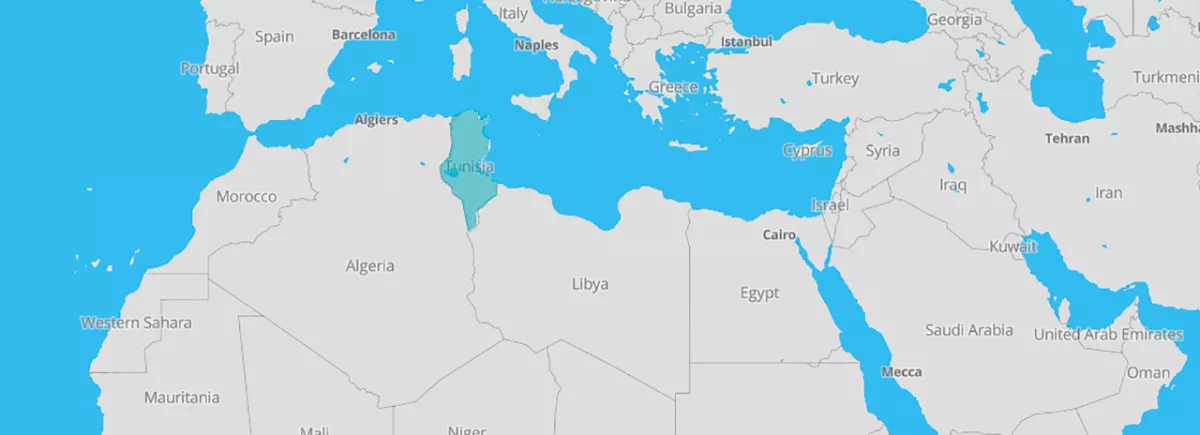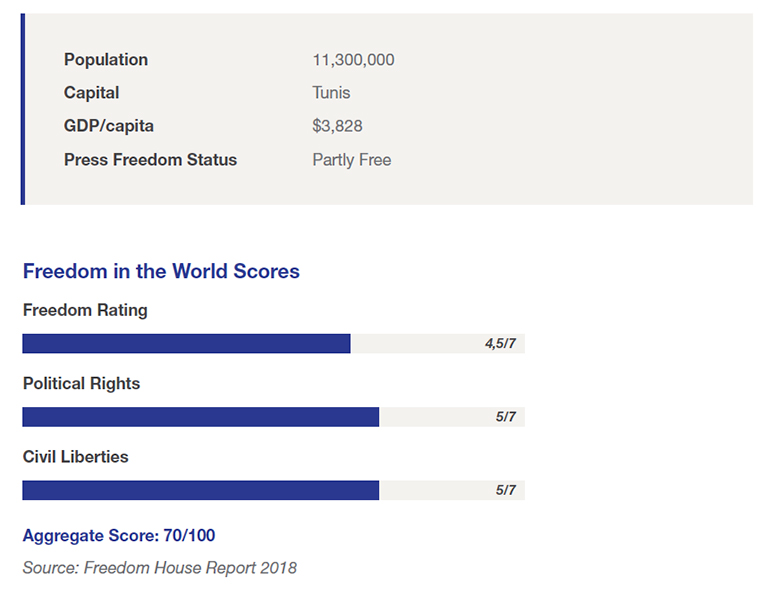
Civic tech in Africa: Tunisia
This sheet proposes a synthetic presentation of civic tech in Tunisia.
Connectivity
The level of Internet penetration in Tunisia was estimated at 55.50% in 2017 (source:
UIT). In terms of the speed of the mobile network connection, Tunisia is ranked 65th, with an average connection speed of 6.17 Mbps. Of all the countries in our study, Tunisia is the one with the largest percentage of people online.
National policy
There is no specific legislative framework for civic tech projects in Tunisia. However, the Assembly of Representatives voted in the
Startup Act in April 2018. The content of the act was developed in collaboration with civil society, financial backers, business incubators and the Administration. The act defines the financial benefits available to start-ups, and it can be exploited for use by civic tech initiatives wanting to establish a startup in Tunisia.
Freedom of expression
Tunisia is one of the rare countries in Africa in which Parliament has adopted a law to protect whistleblowers. Although the country has a high level of Internet penetration, it has a low score (38/100) when it comes to freedom of the Internet. According to Freedom House,
Tunisia is a country in which respect for freedom is effective, with a score of 70/100.
History and development of civic tech in Tunisia
It was the fall of the dictator Ben Ali that kickstarted the first civic tech projects in Tunisia. Since the 2011 revolution, these initiatives have multiplied, to support the creation of democratic institutions. These initiatives are often supported by a number of international backers in search of projects to
fund.
Several flagship projects have emerged in this context, such as the one organised by the Association
Al Bawsala, which monitors the activity of Parliament, with instant shares, through the Marsad initiative. There are now large parts of political activity which are scrutinised by these civic observers and shared with the public.
Digital citizenship still in the early stages
Despite the progress made, transparency and sound governance are yet to be consolidated in Tunisia. To achieve the goal “
people need to be conscious of their roles and get involved at every level of decision-making", commented Selim Kharrat, the executive director of Al Bawsala who says that he is split between frustration and the desire to take action. The challenge for those initiatives that have reached this stage of maturity is now about establishing themselves for the long term (by consolidating their business model), with measurable effectiveness (by developing civic schemes for assessing public policies).



